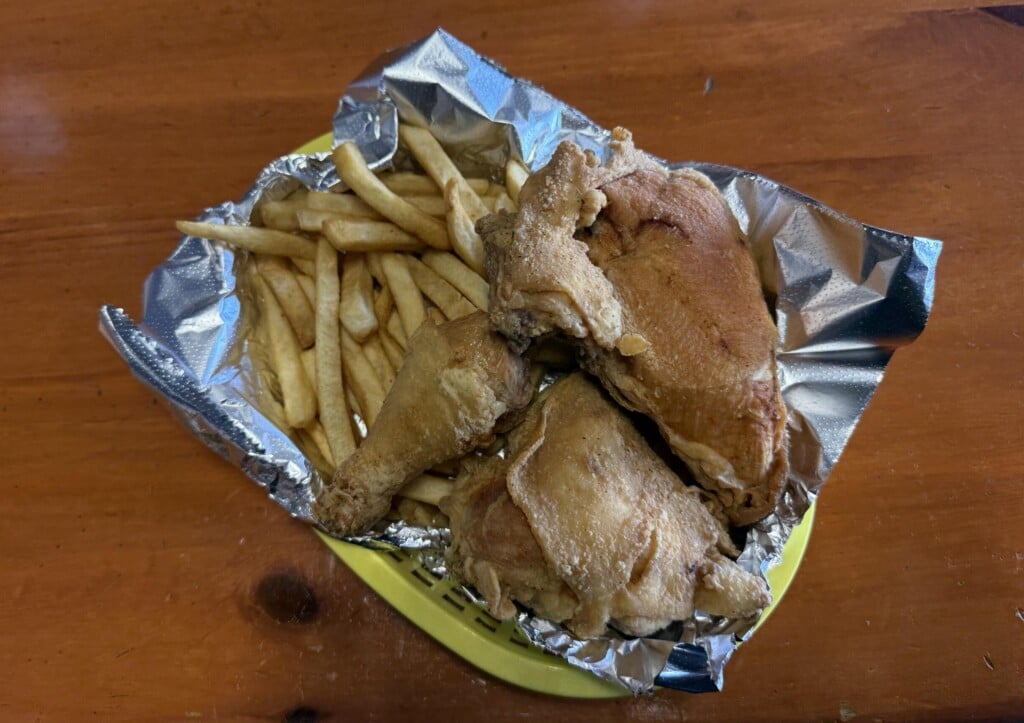Duck, Preheat and Cover
In the 1950s, after the world had been made safe for democracy, Americans were terrified to discover that the world was safe for communism too. As Soviet scientific achievements propelled communists farther into space, we held on to what we had at home: color televisions, sewing machines, refrigerators and toaster ovens.
But if a cozy fortress of a home is the best protection against communism, isn’t a homemaker who prides herself on “delicious and satisfying olive and pickle kabobs” escalating the Cold War? After all, the Russians have tea cookies and borscht on their side.
Either way, olive and pickle kabobs are on the menu at the 1950s All-Electric House for the Johnson County Museum of History’s Red, White and Blue Barbecue. For the celebration, that garnish-dominated entrée is prepared and served by Joan, who welcomes guests into the house as though it’s her own and gives cooking lessons on the patio. Rachel Raile, who wrote the event’s script, notes that the kabobs were “quite a hit at Joan’s last Tupperware party.”
Other characters include Joan’s husband, Chip, who is obsessed with the house’s gadgetry (electric outlets spaced every two feet are impressive, as are bedside dials that allow the pajama-clad to start making coffee from bed). Their daughter Katie (played by Tracy Steitz) just read On The Road and fancies herself a beatnik; her character provides a more critical interpretation of her surroundings, reacting especially cynically to the germ-killing light in the bathroom. Raile plays the woman who leads the neighborhood air-raid patrol. She originally hoped to incorporate duck-and-cover drills, but decided against it out of sensitivity to elderly visitors.
For real Cold War education, visitors should go inside the museum to see the artifacts on display, such as political cartoons that ran in the Olathe Mirror in 1957. And for anyone seeking refuge from the excessive patriotism at the 1950s All-Electric House, the museum houses a fallout shelter stocked with enough water to survive the flag-waving season.




